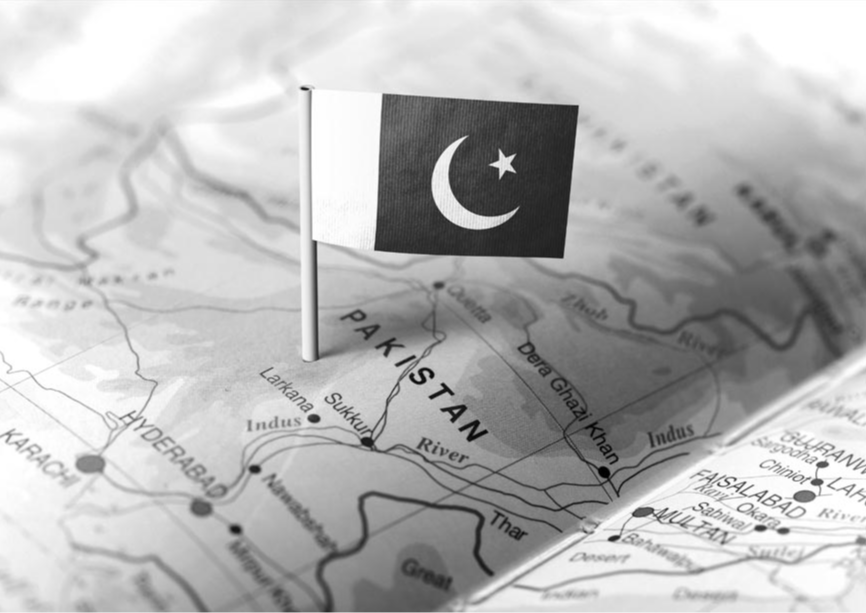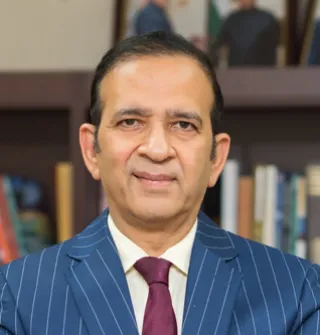-
CENTRES
Progammes & Centres
Location
India will be in no hurry to do business with its new management. Onus of rapprochement lies with Pakistan.

In the aftermath of brazenly rigged elections of 8 February, Pakistan has unveiled a new parliament, government, and cabinet of ministers, in a spectacle carefully choreographed by its military establishment. The latest coalition government is headed by Shehbaz Sharif, the pliant politician who did the army’s bidding in the 16-month Pakistan Democratic Movement government that replaced the government led by Imran Khan, but was disbanded for the elections. The astute Asif Ali Zardari is back for a second term as President. Maryam Nawaz is taking her first stab at governance as Chief Minister of Punjab. Her father, thrice-deposed PM Nawaz Sharif, has been sidelined, under the looming threat of losing his Lahore parliamentary seat to a recount of votes.
The victor of the elections, Imran Khan, languishes in Adiala jail, now forbidden from running his post-election politics from there. The army has achieved its objective of a ‘minus Imran’ and ‘minus Nawaz’ political landscape, even if army chief Asim Munir’s political tricks department could not stop the voters from giving a tantalising glimpse of an alternate universe, where Imran Khan’s PTI would have won and run the government.
The latest coalition government is headed by Shehbaz Sharif, the pliant politician who did the army’s bidding in the 16-month Pakistan Democratic Movement government that replaced the government led by Imran Khan, but was disbanded for the elections.
In dealing with the pain of a stolen mandate, Pakistan’s commentariat recalled three past elections. The only free and fair ones, in 1970, led to the break-up of the country, when they awarded the majority to the Awami League and its jailed Bengali leader Mujib, leading the largely Punjabi army to conclude that the people of Pakistan could not be trusted with free elections. The 1977 elections, rigged by the civilian Bhutto, led to Zia’s coup and held the lesson that rigging was a science that could not be left to the civilians alone, it needed to be supervised by the army. In 2018, the army refined the art of pre-poll engineering to create a ‘hybrid’ regime with the then complicit Imran Khan. It deployed that model again in 2024, failing to factor in public discontent. The newspaper Dawn pointed out that ‘though the people of Pakistan managed to deny the powerful (army) what they wanted, the powerful also managed to deny the people the outcome they wanted’.
The peculiar caretaker system that Pakistan deploys ostensibly for the conduct of free elections, effectively became a vehicle for the army’s manipulation of the polls. In a thinly veiled assertion of political supremacy, the army’s corps commanders met a couple of days after the new PM was sworn in to issue an expansive statement. The army’s top body gave itself a clean chit, dismissing criticism of the rigging as ‘malicious efforts to create distortions, confusion and disinformation’ and asking the people ‘to remain positive and united,’ to forget the pilfering of their mandate as a bad dream. The army will ensure dissenting Pakistanis don’t take to the streets.
In a corporate analogy, the army chief is the powerful CEO presiding over a board of army corps commanders. This cohort has selected Shehbaz as the Chief Operating Officer, and Zardari as the largely ceremonial Managing Director. While the board will dictate security and foreign policy, the COO has the mandate to keep up the pressure on jailed (former COO) Imran Khan and to steady the economy with a 6-billion-dollar IMF loan. The technocrat CFO approved by the board, banker Mohammed Aurangzeb, is tasked to secure the bailout and push for reforms. The shareholders- the populace - find themselves marginalized, with little agency in steering the nation's trajectory.
The peculiar caretaker system that Pakistan deploys ostensibly for the conduct of free elections, effectively became a vehicle for the army’s manipulation of the polls.
Shehbaz has on reviewing the economy expressed shock, calling it a crisis ‘higher than the Himalaya’. The IMF would require tough reforms: increasing energy prices and privatising bleeding public sector firms like steel mills and the national carrier PIA. A key structural reform- of removing the generals from economic management- is above the pay grade of the IMF but should be on the agenda of Pakistan’s overseas mentors. India has cautioned the IMF that Pakistan should not use the 24th IMF program to put cash into the army’s kitty or to repay Chinese debt.
The army can be expected to double down on containing the ‘Imran challenge’, bottling his over 90 independent legislators, perhaps even pressing Imran into a deal to quietly move to the ‘sub-jail’ at his Bani Gala residence. The hybrid government can be expected to be shored up by the army for least 18 months, when Asim Munir comes up for a second term and may wish to stir the cauldron to ensure his extension. He could then select Bilawal Bhutto, eagerly waiting in the wings, as PM, fulfilling a Bhutto family dream.
India’s reaction has been a perfunctory tweet from PM Modi, that makes it clear that India has no views on Pakistan’s flawed polls. India will focus on its own elections, while watching Pakistan with strategic patience. India’s PM made an even stronger statement with his ‘winning hearts’ tour of the Kashmir valley, aimed at reaping the post-Article 370 peace dividend. As he delivered a healing touch and a development promise, he made no mention of Pakistan or its export of terror. Gone are the days when India would conflate its approaches to Pakistan and Kashmir; the welfare of Kashmir is an internal matter for India, while dealing with Pakistan is a foreign policy challenge, and the twain will now not meet. India will be in no tearing hurry to do business with the new management of Hybrid Pakistan; the onus lies on its new leaders to seek board approval for creative rapprochement.
This commentary originally appeared in Indian Express.
The views expressed above belong to the author(s). ORF research and analyses now available on Telegram! Click here to access our curated content — blogs, longforms and interviews.

Ajay Bisaria is a Distinguished Fellow at ORF. He is also a strategic consultant and commentator on international affairs. He has had a distinguished diplomatic ...
Read More +